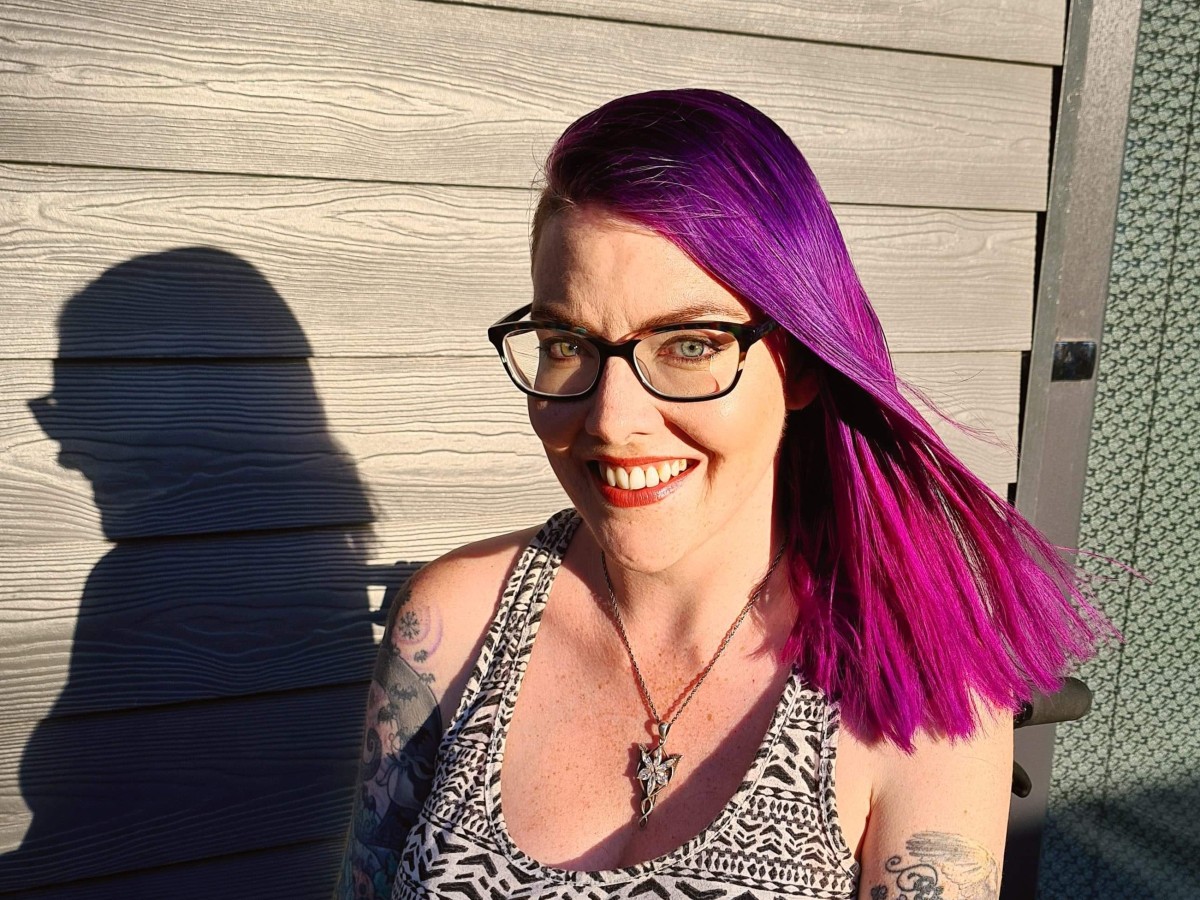Maddie Fay is a poet based in Atlanta. She writes a lot about friends, recovery, illness, dirt, and the ocean. Her first chapbook ‘Cockroach’ is out now! Check her out on Facebook
the moon is a lesbian
the moon is a lesbian,
which i know because she has
kissed every inch of my body
more often than any lover
i’ve ever known.
i have watched the way
she kisses the ocean
and guides her gently home,
have seen her face reflected with love
in the ever-changing sparkling surface of the sea,
and i don’t know any other word
to describe a love like that.
the day we smoked a joint in the woods
and then walked eight miles in the rain
to gas station coffee,
we passed two other gas stations on the way,
but you were holding my hand and
i didn’t want it to stop.
you said
“you’re beautiful”
and i said
~~~~
because you were the most remarkable
person i had ever seen,
leaned up against the hood of a stranger’s car,
smoking a cigarette like a lesbian james dean.
you’d call yourself
“lesbian” sixteen times before breakfast
until it stopped sounding like venom
and started to sound like a prayer,
because how could i ever look at
love like this and feel anything
but holy?
my new church was the woods
by the river,
and i learned to worship
at the altar of your body.
you took me in your arms and you said,
“baby,
you’re beautiful,”
and i told you i loved you
because beautiful had never
meant anything to me
except that i had something
people could take.
i heard “beautiful” from your lips and it sounded
like a blessing.
the moon is a lesbian because
she knows how to love without taking,
i have scarcely loved a man
who has learned how to love without taking,
that is not to say that no man
can love without taking,
but it is a skill that is learned
through a grief
that i have shared with every
queer woman i have ever met.
when you kissed me in the attic,
it was not the first time
i had been kissed,
but it was the first time that a touch
felt like a gift and not a punishment,
and it was the first time i understood
why people write love songs.
i wanted to write you a love song,
but after a lifetime afraid of my own voice,
all i could sing you were hymns.
not because i had made you an idol,
but because your hands on my body
made me feel clean for the first time.
the moon is a lesbian because
the night i stumbled out of
the apartment of the man
who only loved me when
he thought he could keep me,
blood on my lips and nowhere to go,
the moon kissed my fingertips
and she said,
“baby,
what took you so long?
welcome home.”
Find more poetry by incredible LGBTQ+ Women Like Us
Would you like to be our next featured poet?
Comment, like and share the love!
Follow Women Like Us …
Chronically Fabulous: The Critical Role of D&D in an Isolated World
By Josie Quinn: “In a year of isolation and fear, Dungeons & Dragons has not only kept me connected with the outside world, but given all of us the much needed chance to escape our current reality, even if only for a few hours.”
Random Thoughts: Dear 15-Year-Old Me …
Janine Norris: A letter of hope and understanding from the future to her struggling teenage self.
Giving Shame the Finger!
Louise Clare Dalton. “Let’s talk about shame baby, let’s talk about it and me, let’s talk about all the good things and the … oh wait. Hon, let’s not kid ourselves, there isn’t much ‘good’ to speak of when it comes to the shame surrounding sexuality and queerness.










